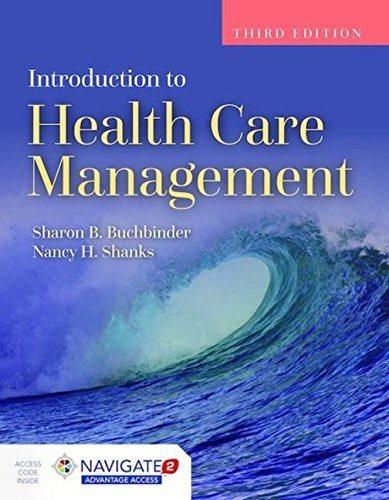Question
Clients will arrive in their attorney's office with their story of financial distress. It is up to the attorney and paralegal to listen to their
Clients will arrive in their attorney's office with their story of financial distress. It is up to the attorney and paralegal to listen to their story, take the relevant facts, advise the client about what they can expect from the bankruptcy and take the information gleaned from the client to prepare the petition properly.
Competency questions:
- What are the rules regarding debts incurred shortly before bankruptcy filing?
- What are residency requirements for filing bankruptcy?
One-to three-page memo on the possible Chapter 7 filing of the below client and fact pattern. Analyze whether the debtor will qualify for a Chapter 7 bankruptcy and the dischargeability of debts. Also, examine what property issues the debtor may have and
any other potential pitfalls or issues you see with the filing. Cite all sources using the Bluebook format.
Demetri Charros just obtained his degree and has obtained a decent entry-level job as an engineer, but he has obtained a lot of debt along the way. Demetri moved from Chicago, Illinois to Boise, Idaho on February 1st for his new job and a lower cost of living. Demetri has student loans of $100,000 and says he has no way of making the payments. He has deferred his payments until now, but he must now start paying $650 per month for his student loans.
Demetri has an annual salary of $39,000 but pays child support of $180 weekly for two children who do not reside with him, though he also has the expense of having the children with him two days every week and several weeks during the summer.
Demetri has amassed $50,000 in credit card debt over the last five years. He regularly uses his MasterCard for incidentals and continues to use this card for groceries, gasoline, etc. Demetri charged $500 last month on the MasterCard, which now has an outstanding balance of $7,000. He has not used his other credit cards in over six months, nor has he made any payments on them. He makes the minimum payment on his MasterCard each month, which is around $75.
Demetri owns a vehicle, a 2005 Ford Taurus with no lien and worth $2,000. Demetri does not own a home but has a lot of personal property in his apartment he bought with credit cards. He has an entertainment system worth $5,000. He also has a watch collection worth $7,500. Three of the watches (worth $3,000 total) were bought with a jewelry store credit card, and the application for the store credit card states that a security interest/ lien shall exist against any property purchased with the card. Although the watches now are worth only $3,000, Demetri still owes $4,500 on the jewelry store credit card for the watches purchased. Demetri also has a baseball card collection from his childhood worth $5,000 and $1,500 in a savings account.
Demetri received $3,500 in income tax refunds for the previous tax year on April 1st of this year. The $1,500 in his savings account came from his refund. Demetri spent the other $2,000 on the next three month's rent ($1,500), and towards his MasterCard debt ($500).
Demetri's net monthly income, after mandatory payroll deductions and taxes, is $2,500. Demetri's necessary monthly expenses without credit card payments, including his child support payments, are $2,450. Demetri would like to file his bankruptcy on May 1st of this year.
Step by Step Solution
There are 3 Steps involved in it
Step: 1

Get Instant Access to Expert-Tailored Solutions
See step-by-step solutions with expert insights and AI powered tools for academic success
Step: 2

Step: 3

Ace Your Homework with AI
Get the answers you need in no time with our AI-driven, step-by-step assistance
Get Started


